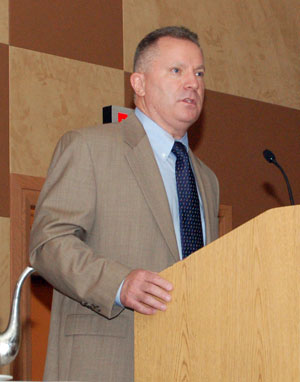Conservation at the Crossroads — What will the future hold?
Conservation leaders from four states gathered in Oklahoma City on Aug. 7-9, 2011, for the South Central Region Meeting of the National Association of Conservation Districts (NACD). The NACD South Central Region consists of Oklahoma, Arkansas, Louisiana and Texas.
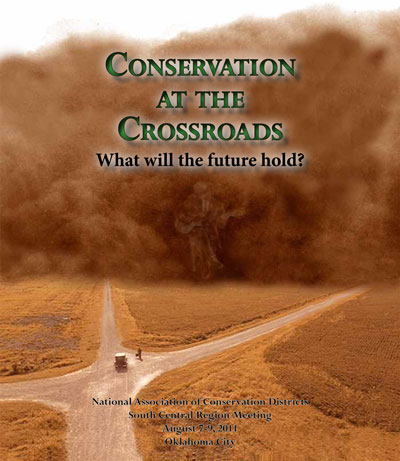
Much of the discussion at the meeting focused on the creation of the next federal Farm Bill. The Farm Bill is the primary agricultural and food policy of the federal government in the U.S. The current Farm Bill, formally titled the Food, Conservation and Energy Act of 2008 runs through 2012 when it will expire.
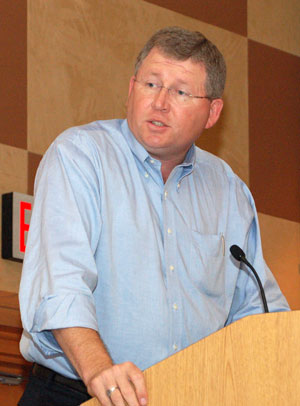
“The nation is currently going through difficult economic times,” said Congressman Frank Lucas. Lucas, (R-Cheyenne, Okla.) represents Oklahoma’s Third Congressional District in the U.S. House of Representatives. “But better times will come again,” he said. “And it’s important that we keep our base conservation programs intact through the hard times so they can be ready when better times and more funding come again,” Lucas said. When asked about the Small Watershed Upstream Flood Control programs, in which Oklahoma leads the nation with 2,107 dams constructed, Rep. Lucas said “I believe it is important that we keep the Watershed Program alive even if funding is at a reduced rate.”
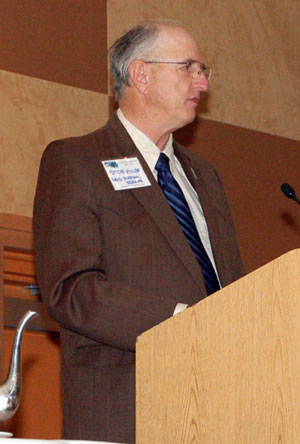
“Government is supposed be ‘of the people, by the people, for the people.’ There is no program closer to that than the conservation delivery system,” Terry Detrick, president of the American Farmers and Ranchers organization said in a statement about the importance of protecting the nation’s conservation partnership of local conservation districts, the USDA Natural Resources Conservation Service (NRCS), state conservation agencies like the Oklahoma Conservation Commission and other partners.
Steve Miller, Idaho farmer and rancher and NACD secretary/treasurer, presented 10 principles supported by NACD regarding the Farm Bill. Among those principals are support for fully funding Farm Bill conservation programs and for technical assistance for planning and implementing conservation programs. The single largest provider of technical assistance for conservation programs in the nation is the USDA Natural Resources Conservation Service.
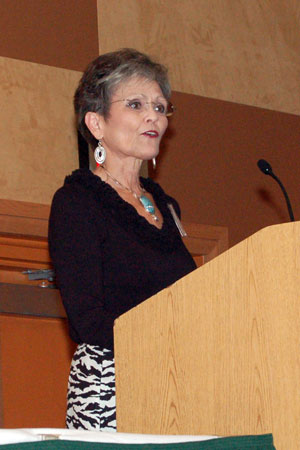
Dr. Bob Blackburn, director of the Oklahoma History Center, spoke to the group on the role of the Dust Bowl and the conservation movement in the history of Oklahoma. Gary McManus, assistant state climatologist for the Oklahoma Climatological Survey, spoke about the causes and history of drought in the state such as the one Oklahoma is currently suffering. “If it wasn’t for the efforts of the conservation movement, the state and the nation would have suffered recurrences of the Dust Bowl several times in its history,” McManus said.
Other speakers included Mike Thralls, Oklahoma Conservation Commission executive director; Jeanette Hale, South Central region representative, National Conservation District Employees Association; Tom Christensen, NRCS regional conservationist; Mike Fuhr, Oklahoma Chapter of The Nature Conservancy executive director; Jimmy Wayne Kinder, Oklahoma Farm Bureau member; and Dr. Jody Campiche, Oklahoma State University assistant professor.
